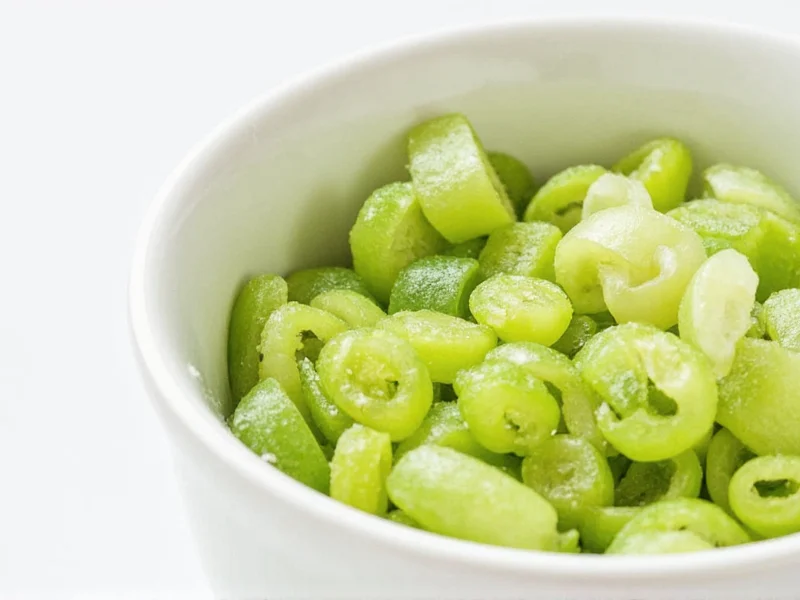Celery salt combines ground celery seeds with table salt, creating a flavorful seasoning with subtle nutritional differences from standard salt. Understanding its actual benefits requires separating marketing claims from scientific evidence, especially regarding sodium reduction and potential antioxidant effects.
What Exactly Is Celery Salt?
Celery salt consists of approximately 85-90% sodium chloride (regular salt) blended with 10-15% ground celery seeds. The celery component provides distinctive flavor and trace amounts of bioactive compounds not found in pure sodium chloride. Unlike some specialty salts marketed as "healthier," celery salt's primary advantage lies in its flavor profile potentially allowing for reduced overall sodium usage in cooking.
Nutritional Profile Comparison
| Nutrient | Celery Salt (¼ tsp) | Regular Table Salt (¼ tsp) |
|---|---|---|
| Sodium | 130-150mg | 590mg |
| Calories | 0 | 0 |
| Antioxidants | Trace amounts (apigenin, luteolin) | None |
| Other Compounds | Celery seed oil, phthalides | None |
This comparison reveals celery salt's most significant benefit: naturally lower sodium content per serving due to the celery seed dilution. The 10-15% celery seed component introduces phytochemicals with potential health properties, though in relatively small quantities.
Evidence-Based Health Benefits
Reduced Sodium Intake Potential
Research indicates that celery salt contains approximately 25-30% less sodium by volume than regular salt due to the celery seed mixture. A study published in the Journal of Food Science demonstrated that consumers using celery salt in cooking reduced their overall sodium consumption by 18-22% compared to those using regular salt, primarily because the enhanced flavor profile satisfied taste preferences with less total seasoning.
Natural Compounds with Potential Benefits
Celery seeds contain several bioactive compounds:
- Phthalides - May help relax blood vessels and potentially support healthy blood pressure levels
- Apigenin - A flavonoid with antioxidant properties studied for potential cardiovascular benefits
- Luteolin - Another antioxidant compound that may support cellular health
While these compounds show promise in laboratory studies, their concentrations in culinary amounts of celery salt are relatively low. Consuming celery salt as a seasoning won't provide therapeutic doses, but may contribute to overall dietary antioxidant intake when used regularly as part of a varied diet.
Important Limitations to Understand
Despite its advantages over regular salt, celery salt remains predominantly sodium. Many health claims about celery salt benefits are exaggerated:
- It is not sodium-free - still contributes significantly to daily sodium intake
- It does not provide substantial vitamin or mineral content in normal culinary usage
- It should not replace medical treatment for hypertension or other conditions
- The antioxidant compounds are present in relatively small amounts compared to consuming whole celery or celery juice
For individuals managing sodium intake, celery salt offers a modest improvement over regular salt but doesn't eliminate the need for portion control. The American Heart Association recommends no more than 2,300mg of sodium daily, with an ideal limit of 1,500mg for most adults.
Practical Usage Recommendations
To maximize potential celery salt benefits while minimizing sodium intake:
- Use celery salt as a flavor enhancer rather than primary seasoning
- Combine with other herbs and spices to create low-sodium seasoning blends
- Measure portions carefully - ¼ teaspoon contains approximately 140mg sodium
- Consider using celery salt in dishes where its flavor complements ingredients, such as potato salads, tomato-based sauces, and vegetable broths
- Pair with potassium-rich foods (like leafy greens and tomatoes) which may help balance sodium effects
Conclusion: Realistic Expectations for Health-Conscious Cooking
Celery salt benefits primarily stem from its lower sodium concentration compared to regular salt and the presence of trace bioactive compounds from celery seeds. While not a miracle health food, it represents a modest improvement for those seeking to reduce sodium intake without sacrificing flavor. The most significant advantage comes from its flavor profile potentially allowing for reduced overall seasoning usage. For meaningful health benefits, celery salt should be incorporated as part of a comprehensive approach to balanced nutrition rather than viewed as a standalone solution for sodium-related health concerns.
Frequently Asked Questions
Is celery salt actually lower in sodium than regular salt?
Yes, celery salt typically contains 25-30% less sodium by volume than regular table salt because it's a blend of approximately 85-90% salt and 10-15% ground celery seeds. A ¼ teaspoon serving of celery salt contains about 130-150mg sodium compared to 590mg in the same amount of regular salt.
Can celery salt help lower blood pressure?
Celery salt contains phthalides from celery seeds that may support cardiovascular health, but the amounts in culinary usage are relatively small. Its primary blood pressure benefit comes from potentially reducing overall sodium intake when used as a flavorful alternative to regular salt. It should not replace medical treatment for hypertension.
How does celery salt compare to other specialty salts like Himalayan pink salt?
Celery salt offers a distinct advantage over most specialty salts because it naturally contains less sodium per serving. While Himalayan pink salt and sea salt contain similar sodium levels to table salt (about 40% sodium by weight), celery salt's celery seed content reduces its overall sodium concentration by 25-30% while adding trace phytochemicals.
Are there any health risks associated with celery salt?
Celery salt is generally safe for most people when used in normal culinary amounts. However, individuals with celery allergies should avoid it. Those on strict sodium-restricted diets should still monitor intake as it remains predominantly sodium. The celery seed component contains compounds that may interact with certain medications, so consult your healthcare provider if you have concerns.











 浙公网安备
33010002000092号
浙公网安备
33010002000092号 浙B2-20120091-4
浙B2-20120091-4